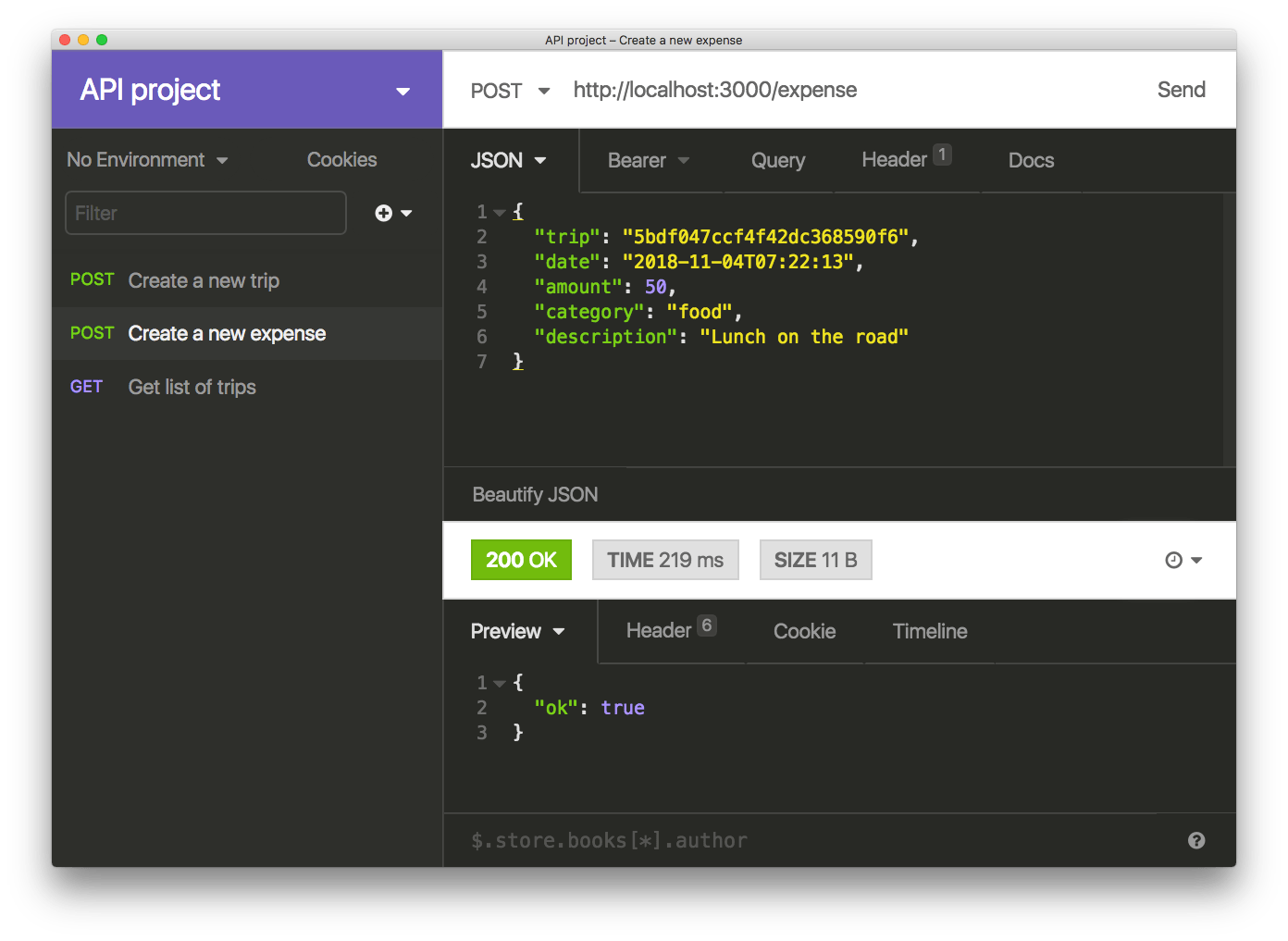In the previous lesson we got the list of trips. Every trip has an associated _id property which is added by MongoDB directly when it’s added:
{
"trips": [
{
"_id": "5bdf03aed64fb0cd04e15728",
"name": "Yellowstone 2018"
},
{
"_id": "5bdf03c212d45cdb5ccec636",
"name": "Sweden 2017"
},
{
"_id": "5bdf047ccf4f42dc368590f6",
"name": "First trip"
}
]
}
We’ll use this _id to register a new expense.
If you remember, the endpoint to add a new expense is this:
POST /expense { trip, date, amount, category, description }
trip in this case will be the _id of one of the trips we previously registered. Imagine that in the app, the user will add one trip, and that will remain the current trip until a new one is added (or selected).
Let’s go ahead and implement our stub:
app.post('/expense', (req, res) => { /* */ })
Like when adding a trip, we’re going to use the insertOne() method, this time on the expenses collection.
We get 5 parameters from the request body:
tripdatethe date, in ISO 8601 format (e.g.2018-07-22T07:22:13), in the GMT timezoneamountan integer with the amountcategorywhich is one fromtravel,food,accomodation,fundescriptiona description for the expense, so we’ll remember about it laterapp.post('/expense', (req, res) => { expenses.insertOne( { trip: req.body.trip, date: req.body.date, amount: req.body.amount, category: req.body.category, description: req.body.description }, (err, result) => { if (err) { console.error(err) res.status(500).json({ err: err }) return } res.status(200).json({ ok: true }) } ) })

The code at this point is available at https://glitch.com/edit/#!/node-course-project-tripcost-d?path=server.js